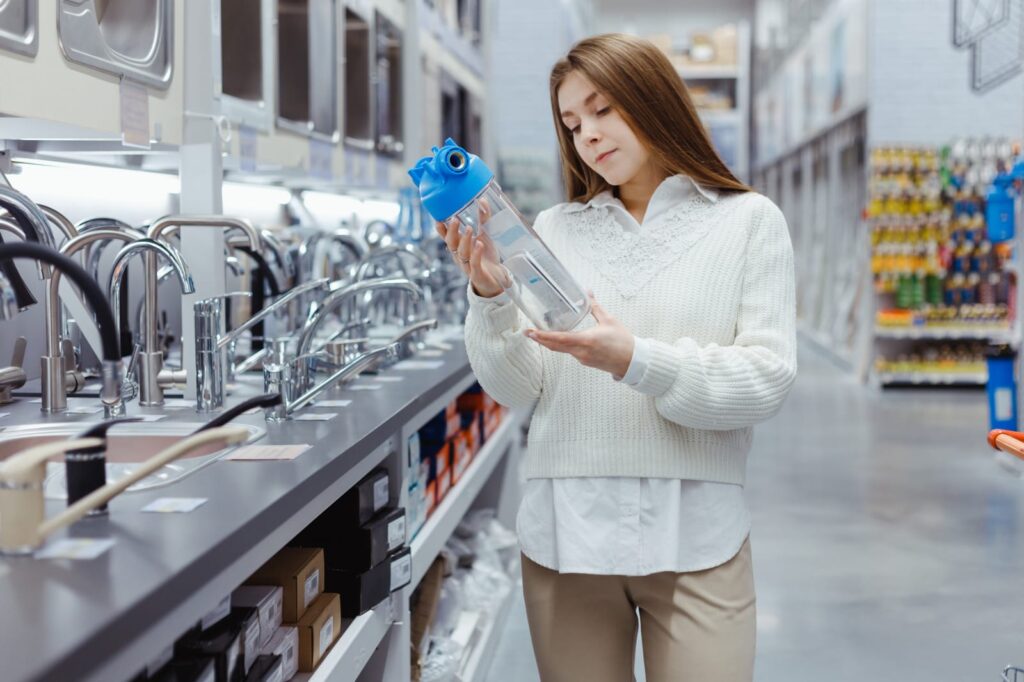Humans need access to clean drinking water. Sadly, many parts of the world lack this access. The World Health Organization reports over 1.7 million individuals in 2022 drank water contaminated with feces. This remains the greatest risk to humans, but there are many other dangers present in drinking water around the world today.
Sources of Contamination
Feces are only one of many risks present in drinking water today. A person might find they take in pesticides when they try to stay hydrated. Other chemicals might be present in the water, including arsenic, nitrate, and fluoride. Pharmaceuticals are often found in drinking water along with microplastics and more.
Water Filtration Devices Can Help
Water filtration devices work to remove a range of contaminants from water. When choosing a device, a person must know which contaminants they are likely to encounter in the drinking water, as this varies by region. With this information, the right device can be selected. Where might this device be needed when a person is traveling?
Niger
Niger might be the biggest country in Africa, but it is still lacking in necessities. This isn’t surprising because it is one of the poorest countries. Over half the citizens lack access to clean water. Farming remains the largest industry in the country, so this lack of water makes life challenging. This problem extends to all parts of the country. Less than one-quarter of schools in Nigeria have access to clean drinking water. Any person who plans to travel to this country for personal, business, or humanitarian reasons should take The Berkey with them. Doing so ensures they will have clean water when needed.
Somalia
Water-related illnesses remain a problem in this country today. Children and moms are the ones most commonly affected. This is only one of many problems the country has today. Drought, starvation, and conflict are others.
Papua New Guinea
Papua New Guinea is home to many beautiful attractions, such as the Rainforest Habitat. However, it is also home to over five million men, women, and children who do not have access to basic water supplies. Many of these citizens live in remote communities scattered across the hundreds of islands that make up the country. Efforts to bring clean water to the islands are often futile, as the country is prone to cyclones and floods. When infrastructure is put into place, it is often destroyed when the next disaster strikes. Travelers to the country need to bring their water with them, and many do with the help of a portable water filtration device.
Mexico
Three-quarters of Mexico’s citizens rely on bottled water, as the drinking water is not safe for human consumption. The problem is so bad this country now tops the list of global bottled water consumers per capita.
The Bahamas
Imagine spending months planning a trip to the Bahamas only to be sidelined by a water-borne illness. The odds of this happening are greater than many people realize. The country struggles to provide clean water for its citizens and tourists to the area. Experts recommend travelers get their typhoid and hepatitis A vaccines before traveling to the country. In addition, visitors should have a portable water filtration device with them when visiting, so they have clean water. Restaurants sell bottled water at a premium for those who are willing to pay.
Morocco
Morocco is a desert country that struggles to provide clean water for its residents. Weather changes have negatively impacted the water supply. Pollution from industrial facilities is another concern when it comes to drinking water. Treat all water before consuming it to prevent the risk of one or more diseases.
Congo
Only 21 percent of the country’s citizens have access to clean water. This is a major improvement over a few short years ago when that number was only ten percent. This is Africa’s second-largest country, but not one of its richest. Approximately 64 percent of its citizens live in extreme poverty. They use whatever water they can get to cook and clean. This same water is what they drink. As a result, cholera and other diseases run rampant. A portable water filtration device would be greatly appreciated by these people, and travelers must bring one if they plan to visit this country.
Brazil
Brazil is another country on the bucket list of many travelers. They cannot wait to see the rainforest and other natural beauties found in this country. Nevertheless, these visitors will need to supply their water, as there is limited access to clean water in Brazil.
Thailand
The beauty of Thailand draws many people in. They cannot wait to visit this country. Once they do, however, they quickly realize the water is not safe to drink. Urbanization, industrial expansion, and overpopulation are three key reasons people must rely on bottled water or purify their water when visiting.
Ukraine
Most people have no plans to visit Ukraine anytime soon, as the country remains at war with Russia. While many travelers would love to see the sites and explore the architectural wonders found in the country, they probably plan to wait until the conflict ends. When it does, they will have new concerns to consider when traveling to this country. A lack of clean water tops the list. Industrial run-off is a significant problem in the country, so visitors and residents must avoid drinking tap water. A water filtration device is needed to make this water safe.

Pakistan
Pakistan is a country of haves and have-nots. Visitors to the country will notice the drastic disparity between those with money and those without, particularly when it comes to things such as clean water.
China
Most people are surprised to learn clean drinking water isn’t readily available in China. This country is a global leader, but its industrialization has harmed the water supply. Sadly, experts estimate 85 percent of the rivers in the cities are polluted and any water in them isnot safe for humans to drink. Visitors need to supply their water or they risk becoming ill.
Taiwan
Arsenic is one of several dangers present in the water in Taiwan. If a person drinks the water, they could have long-term health issues. Restaurants in major cities take steps to protect patrons from these contaminants, and every person should do the same. A portable filtration device makes this task effortless.
Fiji
Fiji is a gorgeous place to visit. Countless people have their honeymoon here. While the beaches are beautiful and the climate is gorgeous, don’t drink the water. Doing so could ruin the trip for all parties very quickly.
Uganda
Forty percent of the country’s population must travel 30 minutes or more if they want clean drinking water. Sadly, this country has been overrun by over 1 million refugees, many from South Sudan. The citizens didn’t have water, and the refugees are now trying to access the same limited supply.
Angola
Approximately seven million Angolans get their water from unsafe rivers and ponds. Water may be plentiful in certain areas, but it is not safe for human consumption. Women and girls may spend hours each day trying to collect water for their families, and much of this water is dirty. World Vision has taken steps to rectify this situation, but there is still a long way to go before all Angolans will have clean water readily available.
Russia
Russia remains a world power today. However, many citizens and visitors do not have clean water to drink. This problem became readily apparent in 2014 when the country hosted the Olympics. Athletes were told not to drink the water, as doing so could make them ill and lead to them missing the games. This problem persists in all parts of the country, not just the city in which the games were held.
Ethiopia
Over half of Ethiopia’s population does not have clean water to drink. The northern highlands are often doused in rain, but severe drought also remains a problem in this country. The citizens cannot count on rain to provide them with clean water. Sadly, individuals living in rural areas are most affected by this problem, and they make up 80 percent of the country’s population.
Mozambique
Citizens who live in rural parts of Mozambique often lack clean drinking water. However, all water systems in the country are operating under a heavy burden. The population continues to grow and urbanization is spreading. This has led to resources being stretched thin, including water. Cyclones in recent years and the accompanying flooding made water-related illnesses a major concern.
Other Countries with Limited Access to Clean Drinking Water
- Bhutan – Two-thirds of the managed water in the country is contaminated today.
- Cambodia – Five percent of the country’s population relies on bottled water.
- Chad – Fifty percent of children living in Chad have no clean drinking water.
One can never be too safe when it comes to the water they drink. Water-borne illnesses can make a person extremely sick and possibly kill them. With the help of a portable water filtration device, a person can lay these concerns to rest. They know to be wary of the tap water and take steps to clean the water. These devices make it easy to do so.



